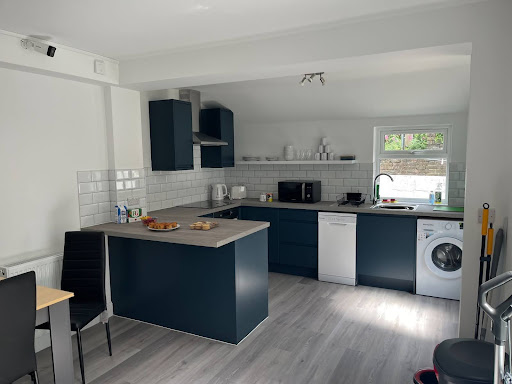Increasing demand is a result of not just rising homelessness but increasing hostility towards LGBTQ+ people, who have to watch on as their human rights are debated by politicians and the media.
That said, homelessness in the LGBTQ+ community is a long-standing problem, with domestic abuse, family rejection, social exclusion and discrimination in the housing system all factors, along with high levels of institutional care and substance use.
A major study published last week by academics in Cardiff shines a light on the issue. The LGBTQ+ Housing and Homelessness Survey, the largest study of its kind, found almost half (47%) of the 1,119 people it surveyed had experienced homelessness at some point in their lives – and 20% had done so in the last year. It found trans, non-binary and agender people, along with people of colour and disabled people, were all at higher risk of homelessness.
Lisa (not her real name) was kicked out of the family home at 17 when her mum discovered she had a girlfriend.
“I came home to a barrage of verbal abuse,” she said. “Mum was saying I’d embarrassed her. That I was ‘wrong’ in the head. That someone like me couldn’t be gay.”
Lisa contacted Stonewall Housing which helped her contact social services and offered housing advice. The charity’s advocacy service still works with Lisa and her social worker to ensure any concerns are heard and that she lives in safety and security.
Advertising helps fund Big Issue’s mission to end poverty
Another service user, Lewis (not his real name), was made homeless after coming out to his parents aged 19.
“My dad said I needed to move out,” he explained. “He said he couldn’t support me doing ‘any of that gay stuff’. I had 24 hours to pack and go.”
After weeks of house hunting and sofa surfing, Lewis reached out to Stonewall Housing and a caseworker helped him access suitable private rented accommodation and mental health support.
The Eastbourne accommodation, launched in partnership with specialists at Star Community Housing, will offer vital health and financial support for its guests, as well as secure housing.
It features five rooms where residents can stay for anywhere from six to 18 months while working closely with a case worker who will offer advice and support. The aim is to create a safe and supportive environment, empowering guests to develop essential life skills, embrace their identity, and live independently.
While demand soars for Stonewall Housing’s services, homelessness services provided by local authorities are not being used, according to the LGBTQ+ Housing and Homelessness Survey. Less than a third of people surveyed said they would contact their local authority if they became homeless.
Advertising helps fund Big Issue’s mission to end poverty
“This is especially the case for those who are trans, and those who have experienced homelessness before the age of 18,” the report found.
It said as well as more accessible information about how to apply for support, knowing that other LGBTQ+ people had good experiences of the service was the thing most likely to encourage people to access support in this way.
The report recommends that “clear and consistent guidelines, developed collaboratively with the LGBTQ+ community, are produced to help local authorities better understand and address the needs of LGBTQ+ people and reduce disengagement”.
Do you have a story to tell or opinions to share about this? Get in touch and tell us more. Big Issue exists to give homeless and marginalised people the opportunity to earn an income. To support our work buy a copy of the magazine or get the app from the App Store or Google Play.










